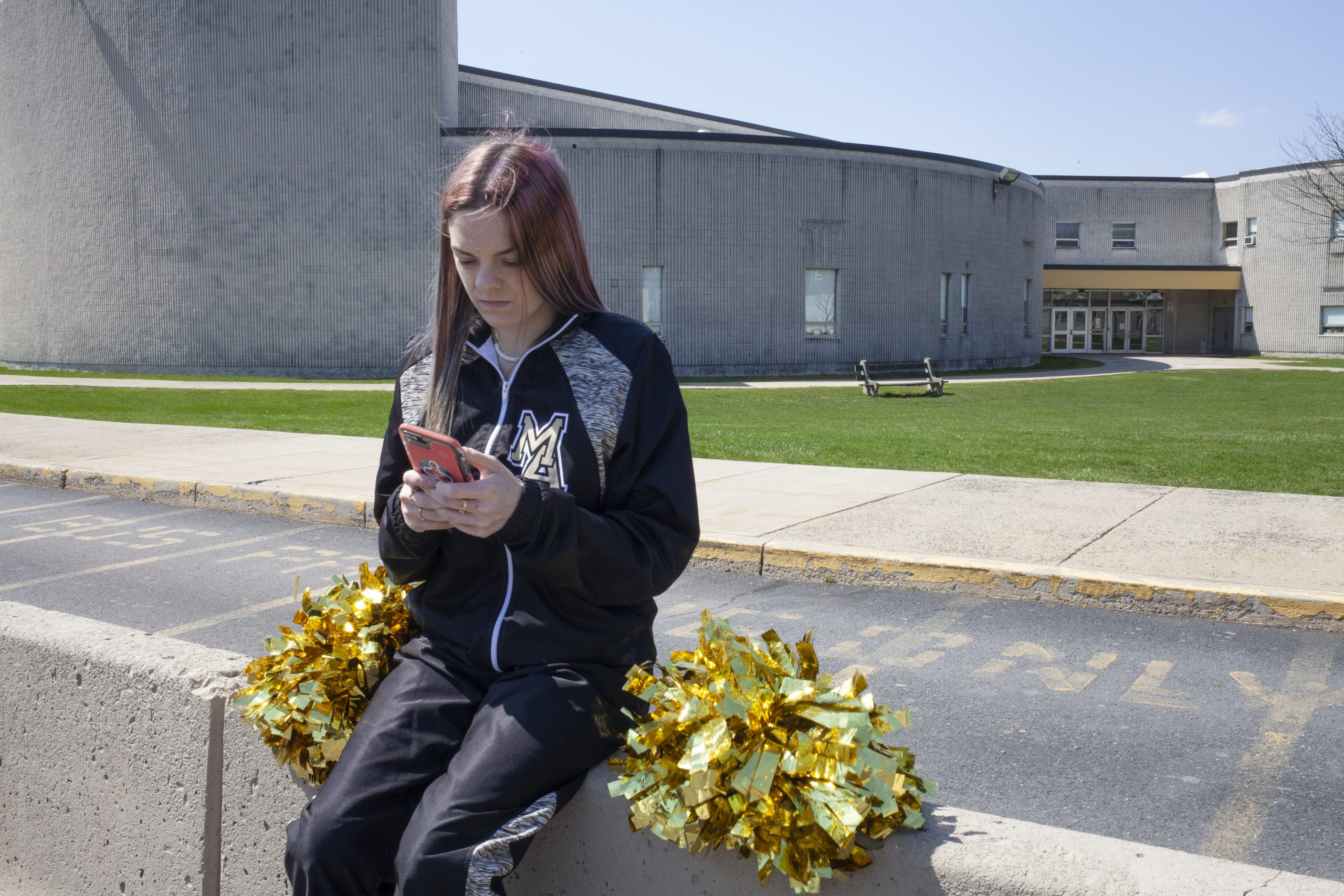[vc_row][vc_column][vc_single_image image=”117096″ img_size=”full” add_caption=”yes”][vc_column_text]A high school cheerleader has won an important victory for the right of students to express their opinions freely while off campus.
At the end of June, the US Supreme Court ruled eight to one that the rights of high school student Brandi Levy had been violated in a case dating back to 2017.
After failing to make the varsity cheerleading team, Levy had posted profanity-laced criticisms of the team roster on Snapchat while off campus at a local convenience store. The team captain kicked her off the junior varsity cheerleading team for a year as punishment.
The Supreme Court was asked to consider whether schools had the right to regulate off-campus speech; it ruled that her posts did not disrupt school operations so Levy’s rights had been violated. The court maintained that schools have a right to regulate speech in some “school-related, off-campus activities” without defining what that would look like.
David Cole, the legal director of the ACLU, called the ruling a victory for students, saying “the message from this ruling is clear – free speech is for everyone, and that includes public school students”. The director of the Pennsylvania ACLU, which represented Levy, characterised the precedent established by the ruling, saying they successfully argued that “students have greater free speech rights out of school and on their own time.”
Despite the nature of her comments, Levy was motivated to fight for her rights. She commented publicly that she was proud to have advocated for the rights of students saying, “young people need to have the ability to express themselves without worrying about being punished when they get to school”.
Recent graduates from Blake High School in Maryland broadly agree with the principle the court ruled on – that her speech did not disrupt the safety of the school.
Cole Shankel, class of 2023, said, “She’s overreacting… cheerleading is lame,” but added, “I don’t think public schools should be allowed to punish students for off-campus speech.”
Jeniffer Ventura, class of 2021, pointed out, “Being held accountable for your actions online is important,” expressing concern about online hate speech and racism affecting the safety and security of the community. Julian Kabik, also the class of 2021, stated simply, “If you are not making a deliberate threat online, then I don’t think you should be punished.”
This is the first student free speech case to favour students since the landmark 1969 case Tinker v Demois. The case considered students who had been suspended for wearing black armbands in protest at the war in Vietnam; the court ruled schools must show a substantial disruption to school operations, besides the speech being unpleasant, to restrict a student’s right to free speech.
The right of students to exercise free speech established in the case has been eroded by others since then. In 1986, Bethel v Fraser ruled that schools could regulate certain styles of expression if they were sexually vulgar. In 1989, in Hazelwood v Kuhlmeier, the court ruled schools had the right to regulate the content of school publications. In 2007, the Supreme Court ruled in Morse v Frederick that schools may restrict speech at or in view of a school-supervised event if it promoted illegal drug use. The US Court of Appeals Fourth Circuit Court in 2013 and Ninth Circuit Court in 2014 ruled a student’s dress could be restricted in two separate cases related to wearing the confederate flag or American flag, respectively. The courts ruled student dress had incited disruption, and the Supreme Court declined to hear both cases.
The Levy ruling has broken the trend in student speech law, affirming students’ off-campus rights and considering the role of extracurricular activities for the first time. A ruling against Levy would have further crippled the original 1969 ruling, allowing schools to restrict students based on their speech being unpalatable and extending a school’s authority to restrict student speech to include online and off-campus speech.
Despite this, the Levy ruling is not a decisive victory for American students’ right to free speech.
When students are on campus, schools act in loco parentis – they function in place of parents. This gives schools legal authority over minors’ rights while they are at school and formally gives all other authority over minors to their legal guardians. This doctrine and the fact that Levy was off campus when she made the posts was at the centre of the majority opinion’s arguments. Since the Levy ruling reaffirms the school’s on-campus authority over student’s rights, this aspect can be interpreted as an opening to further restrict student speech when on campus.
In questioning, some justices raised concerns about a school’s ability to punish off-campus speech that was threatening to other students. Other justices raised concerns of what schools would do with authority over off-campus speech that was politically controversial.
The justices’ questions indicate that they feel the issue of off-campus speech needs to be further unpacked. All but two of the justices are under the age of 70, and all three of former President Donald Trump’s appointments are under the age of 60. With the composition of the court being unlikely to change any time soon, the right of students to express themselves freely may yet be further eroded.[/vc_column_text][/vc_column][/vc_row][vc_row][vc_column][three_column_post title=”You may also want to read” category_id=”581″][/vc_column][/vc_row]





